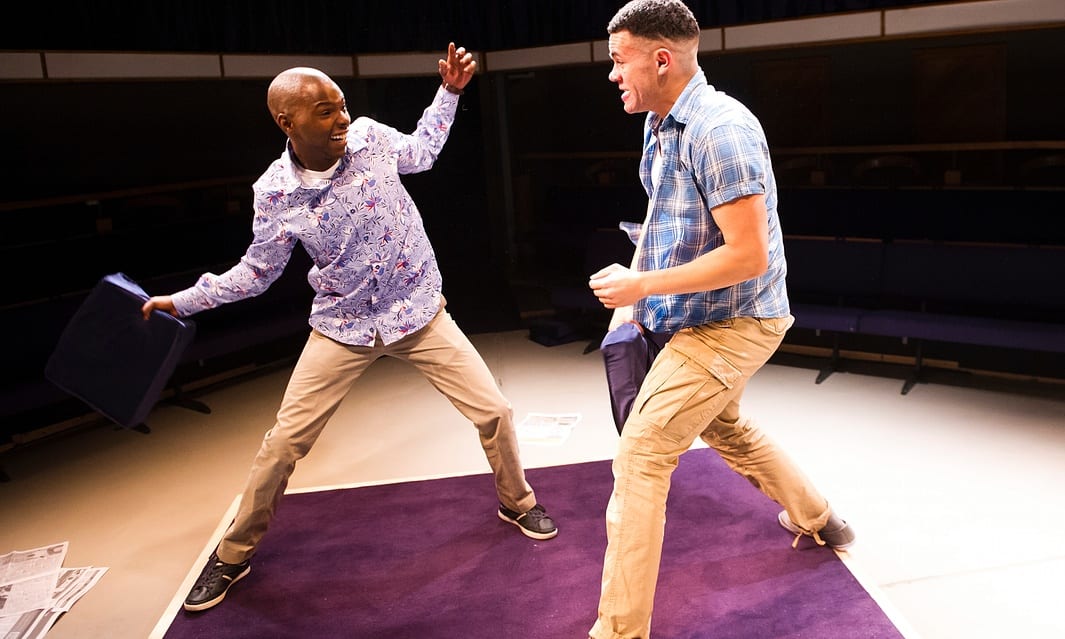This play demands (and commands) absolute attention from its audience.
Both acts begin with a beautifully sung hymn—Nearer My God to Thee and As I Went Down in the River to Pray respectively. But the serenity expressed in these hymns is under threat.
The dialogues that make up the rest of the performance are rather like the snatches of conversations that we overhear when walking along a crowded street. We are left for much of the time required to guess at contexts and the relationships that shape those contexts.
At the very beginning a newspaper headline tells us we are in Uganda and that homosexuals there are being threatened with vengeful violence. After that we have to watch and listen carefully to find out who the people we are watching are, and the nature of the formal and informal relationships between them.
What we pick up, gradually, is that two of the three men are in a homosexual relationship and that all six characters are connected in some way with a church in the locality.
This oblique approach is in itself an expression of the intentions of the play. In most societies there is still some tendency towards edginess and obliqueness of approach when the right of individuals to be homosexuals is at issue. This is particularly so when, as here, those who embrace Christianity do so in a fairly fundamentalist spirit.
Thus, the conversations we see taking place never announce themselves as being about this, that or the other. We listen to the feelings that are being expressed and are often obliged to guest at the nature of what the situations are that give rise to those feelings.
What is perhaps most surprising is that some of these fairly fundamentalist believers are prepared (or perhaps are forced to be prepared) to hope that Christianity and homosexuality may be reconcilable. In this particular context, I would assume, that hope must be quite a sizeable leap of faith.
The Christian elements in the story are in some respect the most surprising. The most senior figure is a descendent of the church’s founders several generations ago. She has been fighting to keep the Church and its beliefs alive and is, despite her largely angelic nature, very angrily upset by the affair between her son and an Irishman.
That affair, of course, is by no means the only factor that has brought about the decline of the church, and its worsening financial situation, which threatens to lead to its closure and physical destruction.
Nonetheless, there are people on show in this play who think (admittedly with a good deal of self-interest in their motivation) of homosexual love as being reconcilable with Christianity. This is no doubt a more widespread feeling than many Christians would wish to be the case and one which might seem absurd to a good many homosexuals who are not Christians.
But time marches on. Dembie, the gay son at the centre of the action is calm and collected for the most part. He tells his older brother, who is by no means reconciled to his stand, that ‘I was born gay… I live as a gay… I shall die a gay…I feel sorry for you… Sorry you can’t accept me as I am.’
His brother’s response? ‘I need you to understand that I will never forgive you putting yourself before your family.’
It would be invidious to praise individuals within the cast for ‘individual’ performances. This is an ensemble piece, beautifully and grippingly presented, some of it funny, some of it almost unbearably moving.
It thoroughly deserved the standing ovation with cheers given it by the Richmond audience.

